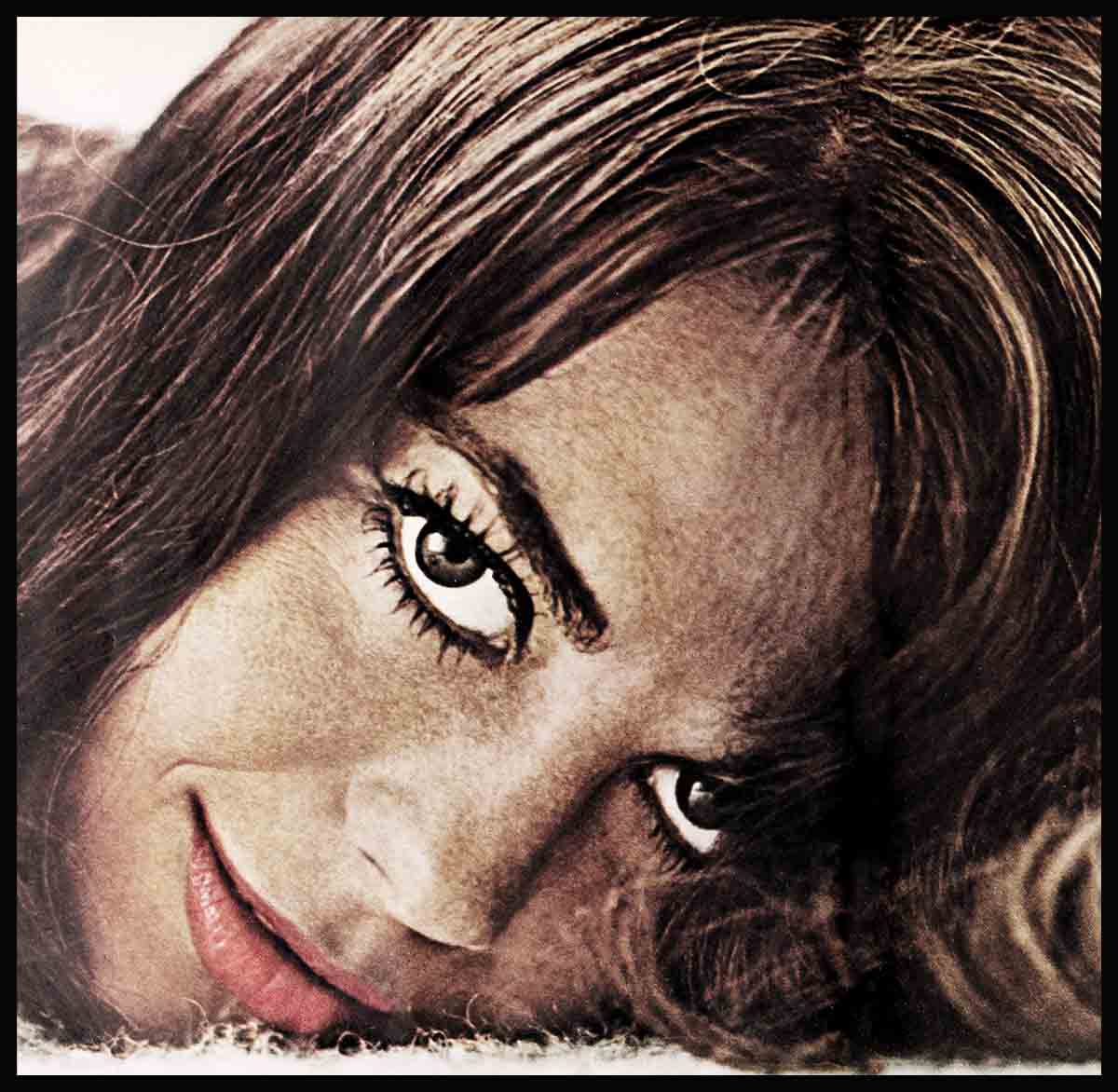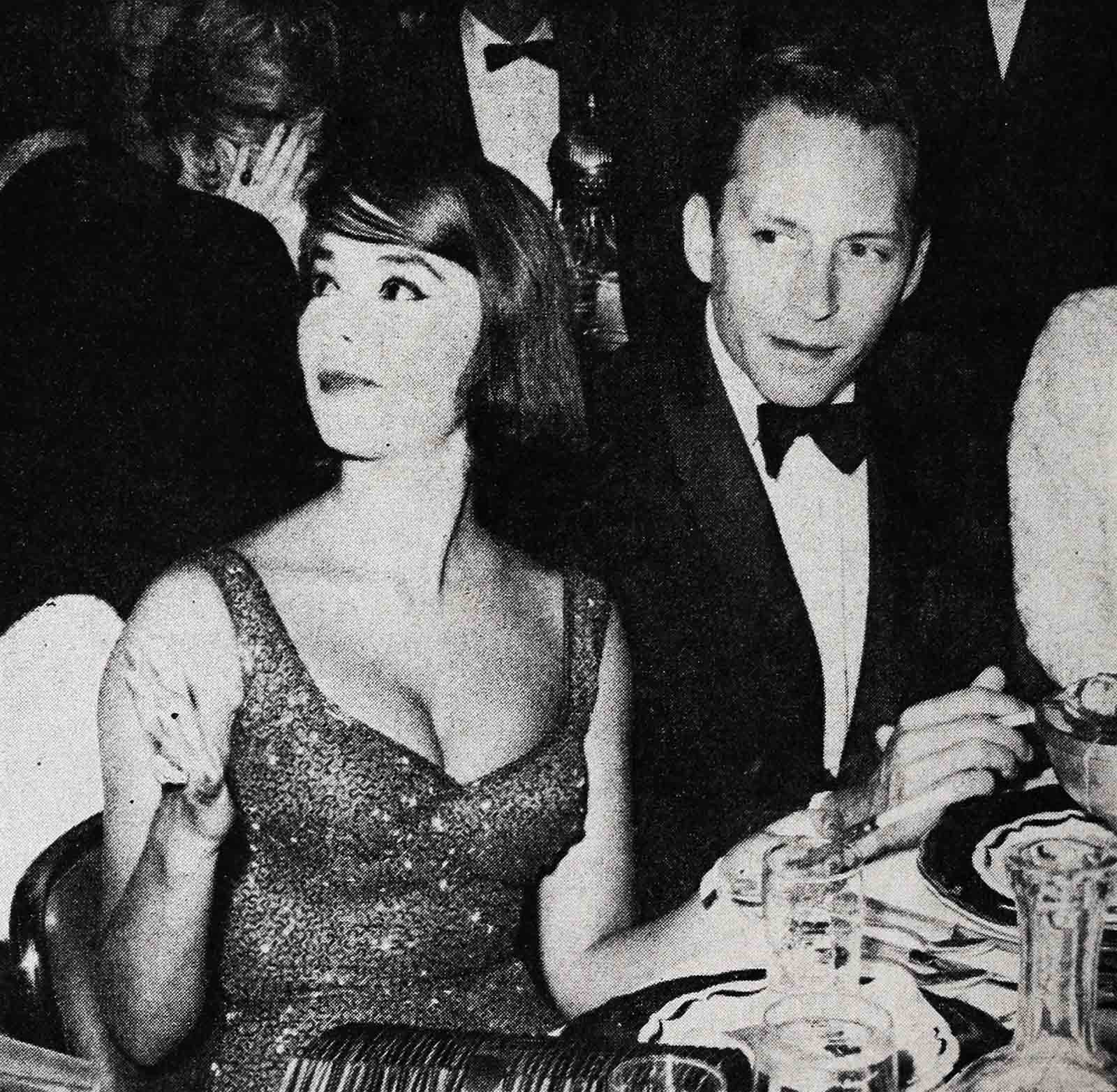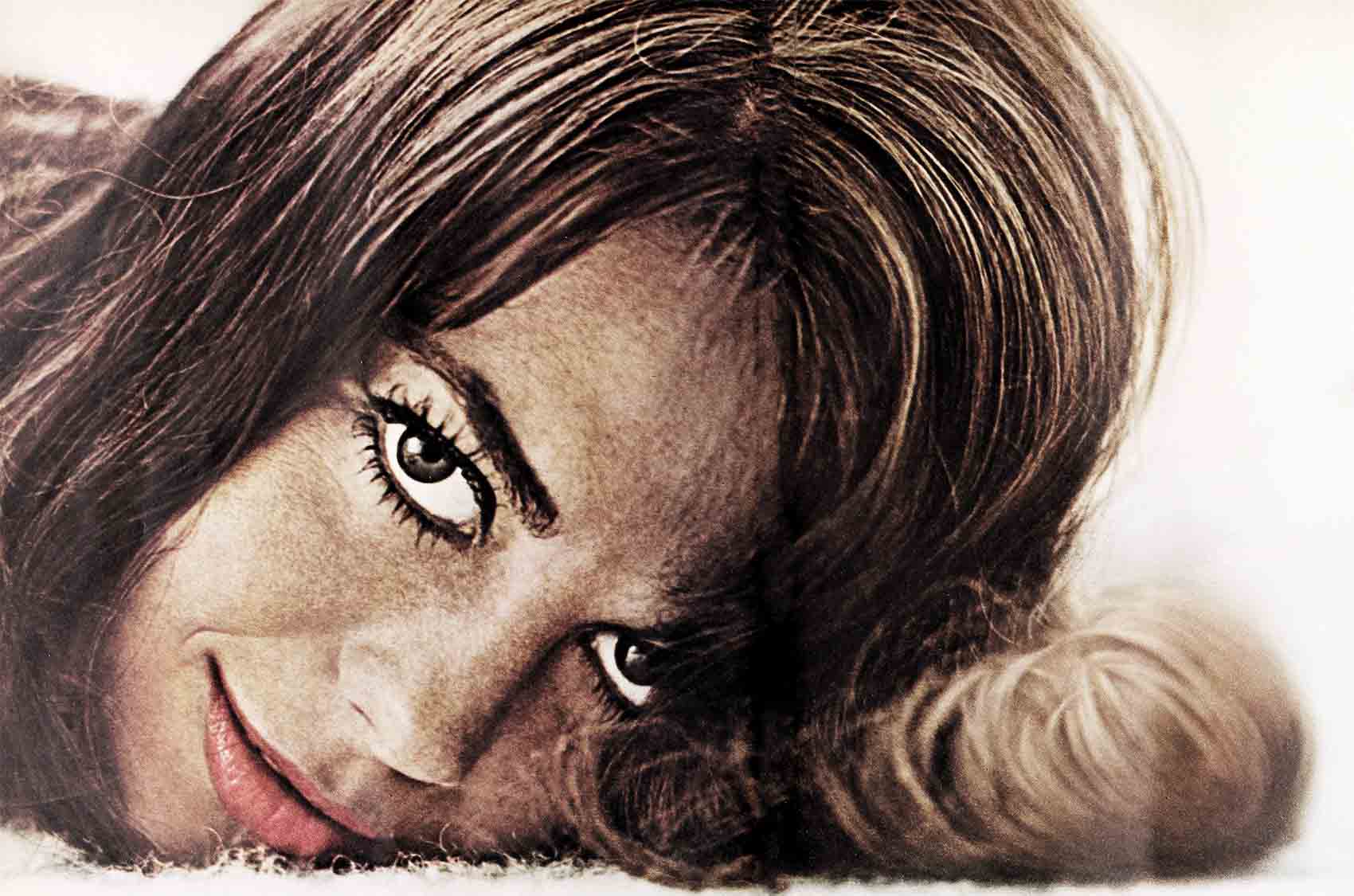
Natalie Wood . . . On The Rebound
If you saw Natalie Wood at LaScala Wednesday night of this week . . . or Thursday . . .or Saturday, saw her with the tall, lean, young man, wealthy and sophisticated, if you saw them together, you’d see the change in Natalie. And you might wonder what sort of man she is counting on to make her forget Warren Beatty. After that wild and rootless romance what might happen to Natalie on the rebound?
For Natalie who loves love is in lave again. But this time you needn’t worry. She’s in love with a man who does have a sense of responsibility, who has a well-rooted life to offer, who can be kookie sophisticated, witty and wise, and who all his life has specialized in picking up the pieces. Arthur Loew, Jr. He rescued Janet Leigh after her young marriage broke—this was before she’d met Tony, when she was struggling to establish her career and needed moral support. It was to him Elizabeth Taylor fled the night she returned from Mike Todd’s funeral; she and the children stayed at his lovely home in the Hollywood Hills until she went east on that memorable trip during which she made the rounds with Eddie Fisher, and it was Arthur in whose care Liz left the children while she was gone. He’s a man who picks up the pieces. He’s intelligent, he was born to wealth (the grandson of film tycoons Marcus Loew and Adolph Zukor), he knows how to use that wealth. He’s a sensitive human being who has showered kindnesses on such diverse but troubled hearts as those of young Joan Collins, Pier Angeli and Eartha Kitt, all at times when a friend in need was a friend indeed.
And of course he married Debbie Power, Tyrone’s widow who was left shattered by Ty’s death two months before their baby was born. Arthur was wonderful to that baby and to the other child, Gerald Zukor Loew, his son with Debbie. But that marriage didn’t work out. Their tastes weren’t easy to blend. The significant fact out of this marriage is that even after a long estrangement with Debbie. Arthur went to court and legally adopted Ty’s son. He went to court with Debbie and explained: “We have consulted with child psychiatrists and pediatricians, and they agree the boy would be happier belonging to a family.” So he adopted young Tyrone and has Continued a devoted father to both boys.
At thirty-seven, this is a man of the world in every sense. For Natalie, after sharing the mix-master world of a confused boy like Warren Beatty for a year and a half, the urbane world of Arthur Loew must seem like a happy vacation. He loves the cosmopolitan aspects of living, as she does—good food, fine wines, chic night spots, great talent. He shares also her keen interest in art and in the motion picture as an art form. At least twice a week they view movies, run for them at either her house or his or over at agent Jay Kantor’s, who, with his date Kitty Bernard, often makes a foursome. It’s hardly news that Natalie is a studious actress, a growing one, a girl constantly striving for new heights. Her work with Kazan on “Splendor in the Grass” and “West Side Story” has opened up a whole new phase of her career, a whole new phase of her intellectual approach to the making of pictures. Arthur recently signed as a producer at Universal-International where a whole new wave of activity is in progress. His first picture at U-I. now in the writing stage, is “Under Two Flags.”
They have two worlds in common. But what is more important is the easy blending of personalities.
Natalie and Warren had their passion for acting and their passion for each other, but in the matter of daily living they were totally disparate. Natalie is impetuous, volatile and gives herself. Warren is studied, easy-going and takes love as it’s offered—he always has—without ever giving himself away. Natalie is actually older than Warren—not in years, of course, but in poise, in her ability to handle herself well wherever she is and under any circumstances. I think she was constantly hurt because this boy, whom she adored and whose talent she reverenced, exposed her constantly to the embarrassment of his sloppiness, his rudeness and incivility—to her. to the world, to the press, to co-workers. “All right, so I’m not buddy-buddy with the crews. I don’t get paid to be friends with them and they don’t get paid to be friends with me. Making pals of grips and electricians is not an actor’s job on the set. I think there’s a tendency among some stars to make a popularity contest out of it.”
She didn’t argue with him. She watched him with those warm, loving black-coffee eyes of hers but she knew better, this girl who started in pictures at four (to his twenty-four), who has spent her life on movie sets and valued the warmth, the affection and friendship of people with whom she worked day after day.

Boy and man: the difference
Arthur’s innate kindness and consideration of people is like balm to her now, so is his sophistication, his ability to guide her. Arthur makes up their minds, he has finesse, he has taste (which extends to the sable coat he reputedly gave her last week). He was born with money, he doesn’t have to make a fetish of it. He was born with the financial and social know-how Nat herself struggled to achieve. But above all, he’s a man not totally concerned with self. He doesn’t have the actor’s ego—which in Warren’s case has assumed such amazing proportions. Arthur Loew is not concentrated on self. He is a man capable of sharing, he loves making people happy.
Our guess: Natalie is far closer to marriage this minute with Arthur than she ever was with Warren, who never had the slightest intention of marrying her and made no bones about it.
“It’s not that I think marriage hurts a career,” he explained. “That point of orientation a woman gives a man can only help him be more productive. A man needs a woman as a jumping off place . . . and I would like children . . . but it’s a need that’s not strong now. I don’t feel I’m ready for marriage. I’m in my twenties. These are pretty good years. Right? How many good years have I got? The important thing for me now is to have a lot of fun get a lot of satisfaction from my work.”
This was when he and Nat were off for their European trek . . . to the Cannes Festival, to Paris, to London. Hardly a flattering statement when a girl is inseparable from a guy, and is right there watching him with those honest eyes, those eyes brimming with love. Her friends worried about her being hurt. Her mother worried. Everyone who loved her worried.
Natalie, for all her dynamism, is a soft, vulnerable girl, a shy, polite, respectful girl who is still sometimes frightened. Famed director Elia Kazan says, “My impression is that child actors tend to be extremely insecure in some areas and secure in others. Natalie is still a little used to being made up like a doll and having some adult come along and tell her, ‘Get the hell over there and do this.’ ”
Like all child actors, she never had a childhood. She assumed responsibility at the age of six and from then on was constantly fighting for more money, better contracts, better pictures. She never dated a high school kid in her life. By the time she was a teenager, she was dating a wide variety of Hollywood gentlemen, some old enough to be her father.
But when you’re making decisions as a child, there always comes a time when you rebel against responsibilities and yearn for the carefree life you should have had and never did. Natalie’s always denied this. She has said over and over, “I wasn’t aware of missing anything as a child, so why should I miss anything in retrospect?” But Karl Malden, who has worked with her through the years and loves Nat, says, “I once asked her if she hadn’t missed a lot of normal things as a child actress. She was eighteen then and it turned out had never been on a simple family picnic. Can you imagine? So I got a couple of others and we all took her out on a picnic. She had a wonderful time.” Amazing? Yes.
After many dates, many friendships, many infatuations, Natalie confided to me that she was in love and had, as a matter of fact, finally discovered what love was. She showed me the elephant’s hair ring he’d brought her back from Japan. Oh yes, she was in love and she and R.J. (Bob Wagner) had no plans. They were just going to let it happen, treasure their happiness, hope for a happy ending—marriage. “We’re not going to do any stories about this, Laura. There’s a flippant attitude toward romance when it concerns people in pictures. We’re not going to turn this lovely thing into a circus. It doesn’t mean much to anyone else and it means everything in the world to us.”
She had changed, she was a different Natalie, she had a tender, quiet look I’d never seen. She and R.J. didn’t make the Hollywood rounds, they skipped the conspicuous spots, spent their time with her folks and his folks and out on his boat. They’d read and talk, cook, watch the rain or soak up the sun. “You have to change when you fall in love,” she said. “You aren’t thinking of yourself any more. You’re thinking of yourself in relation to someone else.”
Instinct. The right instinct. And she followed it. Gave herself to love, to marriage—because of course it happened, marriage, just as she’d hoped it would—and it was a good marriage for four good years. Natalie rejected parts that would have taken her away from Bob, they kept together, lived quietly, spent a lot of time on his boat, the one place where they felt they could have privacy. “Marriage changes your whole being,” Nat told me. “You have a tremendous amount more confidence because someone really believes in you. If you do make a mistake, he helps you see, so it rvas a mistake, so you won’t make it again. I’ve never felt so secure.”
You’ve heard all the speculation—what would have happened to this marriage if Bob’s career hadn’t hit the skids? What would have happened if Natalie hadn’t been thrown into those torrid love scenes with Warren in “Splendor in the Grass”? But I think, actually, that Natalie was changing, growing away from Bob. That lack of childhood had caught up with her. You can’t become an adult until you’ve been a child. Natalie had adapted herself to grownup life. She was wise, controlled, but she hadn’t solved some of her basic problems, hadn’t found who she was. That’s why she went in for psychoanalysis. That’s why when Kazan told her to throw herself into this character, “Be free, be bold, shock yourself!” . . . she did. She put herself totally into the part. It was the beginning of a new Natalie, an end to marriage, a beginning with Warren. Without question, Natalie loved deeply. She only knows one way. “Whatever I do I do completely.”
Instinct again. This was what her heart said, so of course it would turn out well. It would mean the beginning of a new life, the new love would mean a new marriage and a more mature sensuality with a mate who was far more impetuous, unpredictable and intense than Bob; a nonconformist, a rebel with a cause. The cause couldn’t have been more important to Natalie’s way of thinking. The cause—acting. “Isn’t he a wonderful actor?” she’d say to everyone she met. And put up with his restlessness, his nose-picking and hair scratching, his fiddling with any object that came to hand, his vocabulary of four-letter words dropped like staccato obscenity into every conversation.
In New York a reporter questioned him about his piano playing and Natalie had to leave the room to keep from laughing at his explanation. “Piano? Yeah, I slop around on it . . . hit the tree with it.”
After her carefully planned life with Bob, there was something intriguing about this total lack of plan, this rebellion against all the accepted rules. “I’m sloppy, yes. Not dirty. I just enjoy being sloppy. I don’t like details,” Warren said. “Obstacles can eat you up. I think side-stepping them is better than trying to deal with them.”
This has to be the statement of a very young boy, a frightened and insecure boy who, as William Inge says, has been so intent on his career nothing else has mattered and now he’s waiting for the rest of his life to catch up with him. Since life is a series of problems and conflicts and obstacles, he’s pretty busy sidestepping. Marriage, although it would be, as he knows well, an anchor, a jumping off place—he hasn’t sufficient assurance to tackle. Or perhaps he isn’t ready for love, isn’t ready to settle down with one woman now. Since he isn’t, it’s lucky for Natalie that he eluded her. It’s lucky for Natalie that he had to spend some months in New York filming “Lilith” and that somehow, at the last minute, she changed her plans and did not go with him. Those who know Warren, even those who like him, feel that a good angel must have been sitting on Natalie’s shoulder. For she was running up a one-way street to this boy, both arms outstretched with love, and he had no intention of meeting her. Passion yes. Marriage no.
And on the rebound, shattered by her unfulfilled dream, sadder than I’ve ever seen her. Natalie fell into good hands, kind hands. Arthur Loew is a man who doesn’t side-step every obstacle but is quite able to meet them head-on. Natalie’s known him for years and in the beginning, when they started showing up at La Scala or Au Petit Jean or this party or that, it was just “an old, old friendship.” Even the columnists bought that for a while. Warren was working in New York, Natalie was avoiding the terrible eastern heat, why shouldn’t she have dinner with Arthur? But the weeks passed, the twosome persisted and Natalie began to change. She seemed gayer, somehow, freer, she and Arthur were sitting so close, obviously so engrossed. And the laughter . . . so spontaneous.

He’s what Nat needs
One night she was talking about her acting career and he retaliated with the story of how he’d first come to Hollywood, fresh from the University of Arizona. His dad, who was vice-president of Loews, Inc., promptly installed him as production assistant at the studio. “That’s the job all sons or sons-in-law used to get. You either did that or sold popcorn in the theaters. Both jobs were about me same—but popcorn makes me sick, so I settled for the studio. I worked on the Lassie pictures . . . combed Lassie for two years . . . when I started eating dog food they sent me to another producer. For him I read scripts. My family decided to get me out of town so I went on location with a picture called ‘Ambush.’ I combed horses and grew a heard. There weren’t any actors around so I got a job as a soldier fighting Indians. I ad libbed, ‘I wish there was a cigar store behind those Indians.’ It sounded like a gag out of ‘Paleface’ so that shot was out of the picture. I decided anyway lo be an actor, it was the ham in me. So you see, you’re not the only dedicated actor in this family.” He appeared in three films, “Key to the City,” “The Yellow Cab Man” and “Mystery Street,” the wealthiest bit player in town with an office to sleep in, a part-time secretary and a convertible.
He has Natalie in stitches, this tall, lean man who can laugh at himself, at her and at the world. This sophisticate who is at home in any situation and who gives of himself. Quite a change of pace from Warren.
Natalie was on the rebound when she started going out with Arthur Loew. But the love that has grown between them is not a rebound love. Arthur has shown Natalie a whole new world, and the happiness they’re finding together glows in their smiles. If their friends are right, they will be married before the end of the year. Arthur is just the man Natalie needs. People around Hollywood used to say, “As a lover. Arthur’s a born loser.” With Natalie, he’ll find himself lavished with love and laughter. These two are good for each other.
THE END
—BY LAURA BASCOMBE
It is a quote. PHOTOPLAY MAGAZINE NOVEMBER 1963





No Comments